“The children of the 21st century will be listening to The Beatles. And I have no doubt the children of the 22nd century will be listening too!”
Brian Epstein
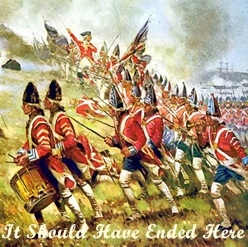
1776 – British troops under General William Howe defeated Patriot forces under General George Washington at the Battle of Brooklyn Heights (also known as the Battle of Long Island).
In the first major battle of the Revolutionary War to take place after the United States declared its independence, the British marched against the Patriot position at Brooklyn Heights, overcoming and then outflanking the entire Continental Army.
Members of the 1st Maryland Regiment repeatedly charged a numerically superior British force during the battle, allowing General Washington and the rest of the American troops to escape. The Americans suffered 1,700 casualties to the British loss of only 377 men during the fighting.
After the victory, Howe chose not to follow the advice of his subordinates and did not storm the Patriots at Brooklyn Heights, where he could have easily taken the Patriots’ military leadership prisoner and ended the rebellion.
Even after Washington ordered a retreat to Manhattan by boat, the British – based on the size of their army – could have captured most of the Patriot officer corps, including Washington.
Howe, however, had no desire to execute Washington and his officers as traitors because he still hoped to convince the Americans to rejoin the British Empire.
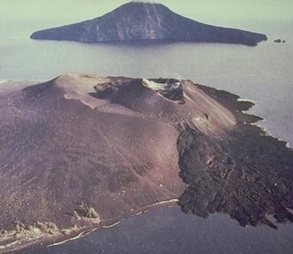
1883 – The most powerful volcanic eruption in recorded history occurred on Krakatau (also called Krakatoa), a small, uninhabited volcanic island located west of Sumatra in Indonesia.
Heard 3,000 miles away, the explosions threw five cubic miles of earth 50 miles into the air, created 120-foot tsunamis and killed 36,000 people.
Of those deaths, at least 30,000 were caused by the tsunamis created when much of the island fell into the water. The greatest of these waves measured 120 feet high, and washed over nearby islands, stripping away vegetation and carrying people out to sea. Another 5,000 people were scorched to death from the pyroclastic flows that rolled over the sea, stretching as far as 40 miles.
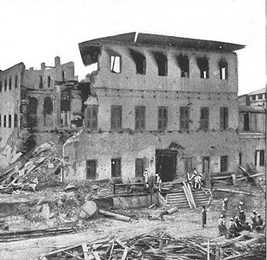
1896 – The shortest war in world history was fought between the United Kingdom and Zanzibar.
The immediate cause of the “war” was the death of the pro-British Sultan Hamad bin Thuwaini two days earlier and the subsequent succession of Sultan Khalid bin Barghash. The British authorities preferred Hamud bin Muhammed, who was more favorable to British interests.
In accordance with a treaty signed in 1886, a condition for accession was that the candidate obtain the permission of the British consul, and Khalid had not fulfilled this requirement.
The British sent an ultimatum to Khalid demanding that he order his forces to stand down and leave the palace. In response, Khalid called up his palace guard and barricaded himself inside the palace.
The ultimatum expired at 09:00 a.m., by which time the British had gathered three cruisers, two gunboats, and 150 marines and sailors in the harbor.
Around 2,800 Zanzibaris defended the palace; most were recruited from the civilian population, but they also included the sultan’s palace guard and several hundred of his servants and slaves. The defenders had several artillery pieces and machine guns, which were set in front of the palace sighted at the British ships.
A bombardment began at 09:02. It set the palace on fire and disabled the defending artillery. A small naval action took place, with the British sinking the Zanzibari royal yacht and two smaller vessels.
The flag at the palace was shot down and firing ceased at 09:40. The sultan’s forces sustained roughly 500 casualties, while only one British sailor was injured.
The entire “war” had lasted 38 minutes.

1964 – Gracie Allen, whose comedy helped make Burns and Allen a top show business act for years, died of a heart attack at the age of 69.
She was a vaudeville star and comedienne who became internationally famous as the zany partner and comic foil of husband George Burns, her straight man appearing with him on radio, television and film.
Their half-hour television series ran from from 1950 to 1958 on CBS.
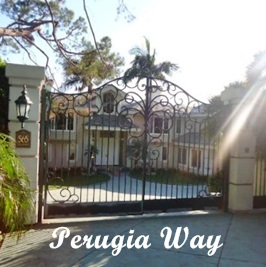
1965 – The meeting of two great musical acts of the 20th century took place on this day: The Beatles and Elvis Presley.
The Beatles were in Los Angeles for a week, staying in a rented Benedict Canyon house while they played two nights at the Hollywood Bowl. Elvis was at his home on Perugia Way in Bel Air, having just returned from location, shooting his latest movie, Paradise, Hawaiian Style.
The rules were strict: No photographs or recordings were allowed.
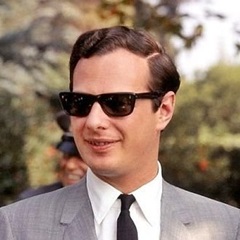
1967 – Beatles manager Brian Epstein was found dead of an accidental drug overdose in his Chapel Street, London, home. He was 32.
An inquest found the cause of death to be accidental, resulting from “incautious self-overdoses” of Carbrital, a drug taken to assist sleep. It was revealed that he had taken six Carbitral pills in order to sleep, which was probably normal for him, but in combination with alcohol they reduced his tolerance to lethal levels.
In a 1970 Rolling Stone interview, John Lennon commented that Epstein’s death marked the beginning of the end for the group: “I knew that we were in trouble then. I didn’t really have any misconceptions about our ability to do anything other than play music. I was scared. I thought, ‘We’ve had it now.'”
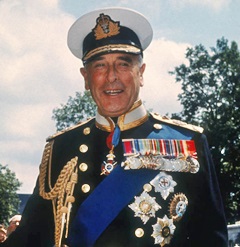
1979 – Lord Louis Mountbatten, a war hero, elder statesman, and second cousin of Queen Elizabeth II, was killed when Irish Republican Army terrorists detonated a 50-pound bomb hidden on his fishing vessel Shadow V.
Mountbatten was spending the day with his family in Donegal Bay off Ireland’s northwest coast when the bomb exploded. Three others were killed in the attack, including Mountbatten’s 14-year-old grandson, Nicholas.
Later that day, an IRA bombing attack on land killed 18 British paratroopers in County Down, Northern Ireland.
The attacks hardened the hearts of many Brits against the IRA and convinced Margaret Thatcher’s government to take a hardline stance against the terrorist organization.
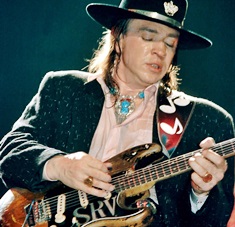
1990 – Stevie Ray Vaughan, one of the most influential blues guitarists of the 80s, was killed in a helicopter crash in East Troy, Wisconsin. He was 35.
Vaughan had finished performing with his band Double Trouble as the opening act for Eric Clapton at Alpine Valley Music Theatre. After the concert concluded, he and four members of Clapton’s tour entourage boarded a helicopter that crashed into the side of a nearby ski hill shortly after takeoff in very thick fog.
About 6:30 a.m., wreckage of the Bell Jet-Ranger was found about three-fourths of the way up the northeast side of the ski hill, a half-mile from the lodge, with the debris scattered across 200 feet. The helicopter had lifted only about 100 feet off the ground and traveled about 3,000 feet before the crash.
Puzzling Factoid: Vaughan was inducted into the Rock and Roll Hall of Fame in 2015, but the question is this: Why in hell did it take the “powers that be” so damn long?
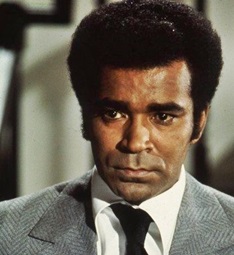
1996 – Actor Greg Morris, best known for portraying electronics expert Barney Collier in the Mission: Impossible series, of a brain tumor at the age of 62 .
Morris Factoid: His father was Francis Williams, a trumpeter who played in bands led by Fats Waller, Ella Fitzgerald, and Duke Ellington.
Compiled by Ray Lemire ©2024 RayLemire.com. / Streamingoldies.com. All Rights Reserved.
Good Morning Ray, I shared the info on the volcano & the Beatles & Elvis with Ted. Hope they all were able to relax & enjoy their time together but have a feeling if there was music it was incredible. Very interesting lesson today; Thank you Ray & a good day to you too. Lee 🙂
PS Ted replaced the back brakes on his truck yesterday & I have a new to me stand that I organized with pens, pencils, markers, etc. Today we work with concrete blocks.
Thanks, Lee. I am very glad you enjoyed it!
Good history lesson again, Ray. Particularly interesting to me was the story about British General Howe attempting to convince the Patriots to come back to British rule. I never heard that slant on the Revolutionary War.
Thanks, Jim. I guess we are never too old to learn things. 🙂
Very interesting info
Lots of early deaths by great entertainers
Elvis meeting the Beatles ok
General Howe later saw his mistake and paid for his gentlemanly conduct
Thanks teach
Thank you, Mary Helen. If General Howe had done the right thing, we might all still be British subjects! Yep, too many premature deaths.